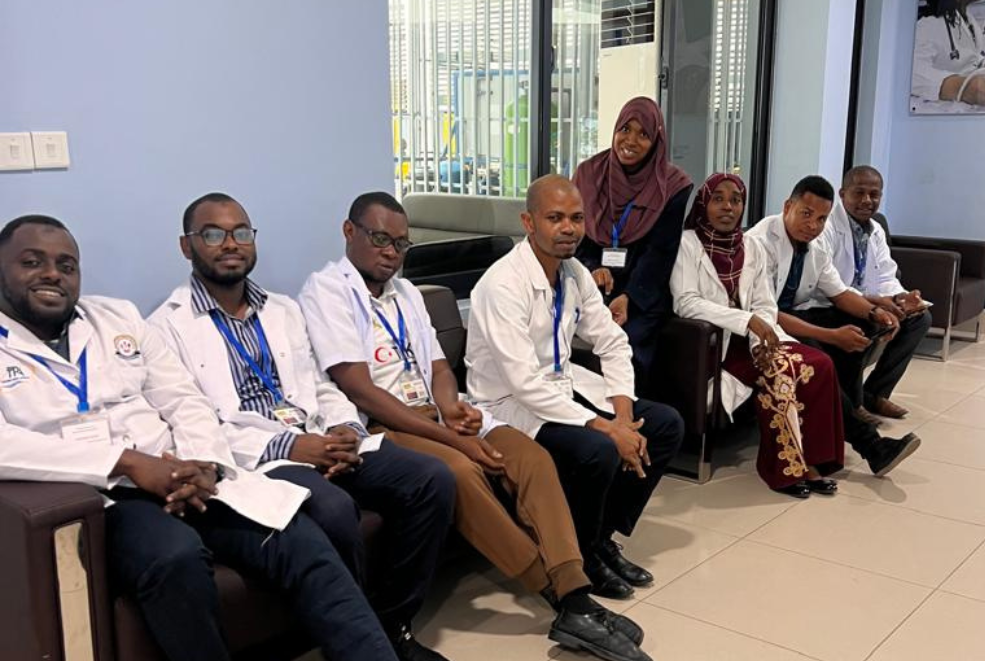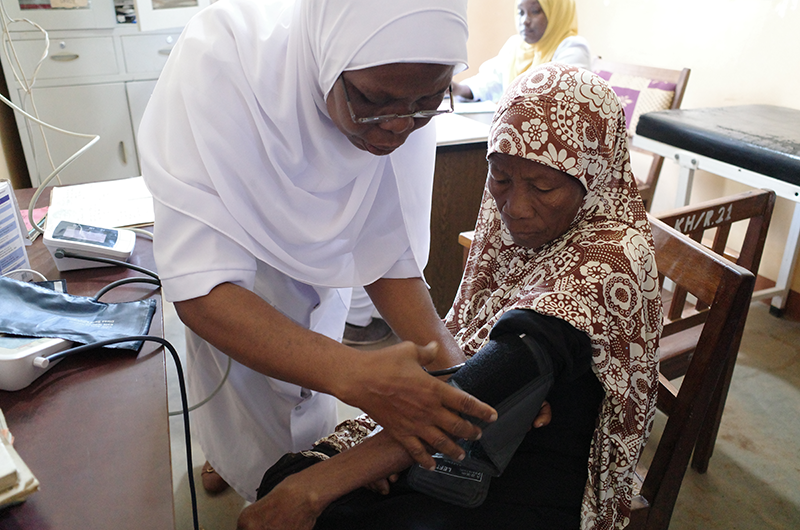At IHP, we want to ensure that the healthcare access we enable through medical donations transcends short-term interventions and strengthens health systems to deliver enduring benefits to communities. That’s why we’re launching our new Sustainable Healthcare Initiative, which aims to provide funding support to targeted activities implemented by our partners to contribute more broadly to improved access to healthcare, in line with IHP’s objectives and vision.
In this approach, IHP can offer programme partners small grants to fund additional activities that will improve access to healthcare and complement the medical donations we provide, increasing our impact. Potential activities we hope to explore through the Sustainable Healthcare Initiative may include:
Providing training for medical staff to improve healthcare service delivery and strengthen referral systems.
Delivering community health awareness/education/sensitisation activities that promote health-seeking behaviour.
Providing psychosocial services as part of wider mental health programming
Improving medical storage facilities.
Supplying needed diagnostic equipment.
As part of this, we are pleased to launch our first pilot project in partnership with Health Improvement Project Zanzibar (HIPZ). Together, we will improve the management of cardiovascular disease (CVD), which is a rising challenge in Zanzibar and many other low- and middle-income countries.
Enhancing CVD management in Zanzibar
Non-communicable diseases, particularly cardiovascular disease, are increasing in Zanzibar. Nonetheless, access to timely diagnosis and treatment remains very limited, especially outside major hospitals. This care gap endangers thousands of lives each year.
To tackle this urgent issue, IHP and HIPZ are initiating a five-month pilot project (July–December 2025) across eight district hospitals in Unguja and Pemba. These hospitals were carefully chosen to promote equitable access, reaching more than 1.3 million people who currently face substantial barriers to care.
This work will directly complement IHP’s medical donations. By improving diagnostic capacity and healthcare worker skills, the medicines supplied will be prescribed more effectively and used to greater impact, ensuring patients receive appropriate treatment at the right time.

What the project will deliver:
- Training frontline healthcare workers: Forty doctors and nurses will undergo practical training in ECG use, interpretation, and management of heart failure.
- Specialist development: Eight high-performing doctors, one from each hospital, will participate in intensive cardiology training at the Jakaya Kikwete Cardiac Institute in Dar es Salaam, acquiring advanced diagnostic skills in ECG and ECHO.
- Mentorship and ongoing support: Weekly sessions led by a HIPZ cardiologist, radiologist, and physician will strengthen skills and aid real-world application within local hospitals.
- Establishing cardiology clinics: By the project's conclusion, eight new cardiology clinics will be operational, offering diagnosis and care to an estimated 960 patients in just three months.
- Strengthening access to medicine: IHP will supply essential cardiovascular medications to Zanzibar, ensuring that clinics are able to provide effective treatment alongside improved diagnostics.
Beyond immediate outcomes, this project has been designed with sustainability at its core. By investing in healthcare workers’ skills and equipping hospitals with vital diagnostic tools, the benefits will extend well beyond the project’s lifespan, reaching 1.8 million Zanzibaris and laying the groundwork for future specialist care.
Looking ahead
The Zanzibar pilot marks the initial step in IHP’s broader Sustainable Healthcare Initiative programme. By collaborating with dedicated local partners like HIPZ, we are creating a model for scalable and sustainable impact that can be replicated for broader health system strengthening across Zanzibar and beyond






Help us deliver access to medicine all year round
Join our giving community and help us transform the health outlook of families every single month.
.png)
See how your donation makes a difference
£5 can help us to give 15 people treatment
£20 will provide 16 children with antibiotics
£100 will provide 83 pregnant women with life saving medicine.
£450 will provide am emergency medical kit to 60 families.
Whatever you give, you could be making a life-changing, even life-saving difference to someone every month.
See how your donation makes a difference
£5 is enough to source and send £600 worth of medical supplies a year to people in need; enough to help approximately 50 people around the world.
£10 is enough to source and send £1,200 worth of medical supplies a year to people in need; enough to help approximately 100 people around the world.
£25 is enough to provide around 750 treatments in a year, helping approximately 250 people in need; and for some, is the difference between life & death.
£100 is enough to provide medicines and supplies for approximately 1,000 people a year living in disaster-hit and vulnerable communites.
Whatever you give, you could be making a life-changing, even life-saving difference to someone every month.

Help us deliver access to medicine all year round
From fundraising to delivering medicines, you can also support our vital work in other ways.
See other ways to help







